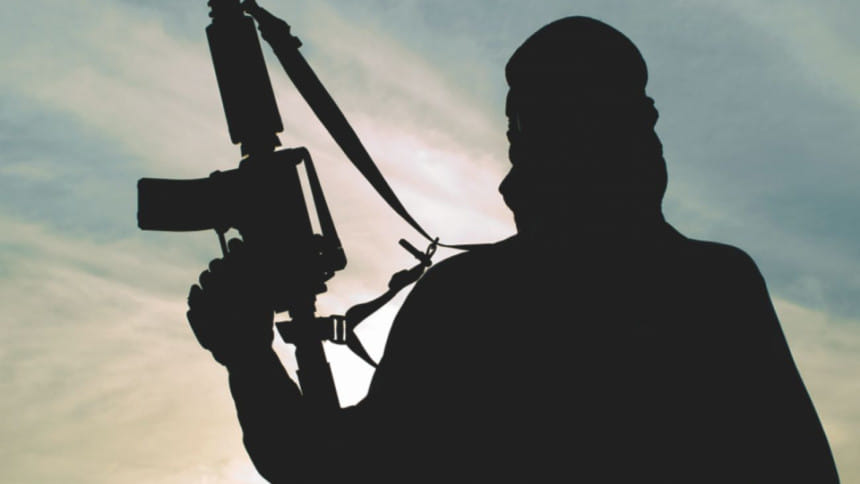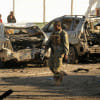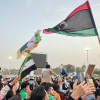The War on Abstract Notions

Terrorism is an underlying symptom; an emotional ploy; a political tactic. Mongol Hordes used it to obtain submission. George Washington used it against British colonials. The Tamil Tigers used it against Sri Lankan authorities. Tactics cannot be bombed. Fighting the symptom, without attending to the cause, is a fool's errand. So, conceptually, a War on Terror is roughly as serious as a Crusade against Depression. Both lack a quantifiable or achievable goal.
The modern evil of 'terrorism' cannot be understood without understanding its civilised, noble twin 'anti-terrorism,' which presently manifests itself as the ubiquitous War on Terror (WoT). The two are symbiotic, inseparable, with overlapping and common interests. International terrorism necessitates anti-terrorism which, in turn, is sustained (funded and operated) thanks to regular terrorist attacks. In fact, the FBI has been criticised for springing elaborate 'extremist traps' to boost its success rates and thus retain federal funding.
The whole premise and thinking of the WoT is misplaced and nonsensical. You can no more defeat 'terror' by killing 'terrorists' than you can arrest 'fun' by jailing 'clowns'. Post 9/11 anti-terrorism (denoting anti-terrorism, counter-terrorism and counter-insurgency) has failed in at least four major aspects: establishing motive; identifying terrorists; rallying allies; and devising viable strategies.
A historicity lies at the heart of these failures. Islamist terrorism was virtually unheard of till World War I, when the Ottoman Empire was arbitrarily sliced into nations, to be chaperoned by western powers. The chaperones' strategy was to divide and rule, and to support minority factions to thwart the growth of pan-Arab nationalism. Subsequent creation of a Jewish state in the middle of Arabia, cleaving of Palestine, patronage of Saudi-Wahabi monarchies, arming and funding of dictators, CIA-engineered revolutions, arming 'rebels' to fight the Soviets or Alawites, disbanding standing armies and 'misplaced' arms caches have all contributed to the rise of Islamist terrorism. Viewing the modern scourge in absence of its historical context (and probable motivation) is either unintelligent, or motivated.
As with the Coalition of the Willing, terror networks have not been thoroughly researched. Apart from the poster-boys, nothing is known about other operatives. Experts cannot say for sure if ISIS is disbanded Ba'athists or US-armed Free Syrian Army (FSA). Nor can they agree on whether ISIS is bankrolled by oil sales or by taxation/extortion. And when ex-CIA senior analyst Michael Scheuer argues that 'al-Qaeda' is just Arabic for 'the (CIA) database' – the administration has no response. The leaders also have no explanation for their blanket support of Saudi Arabia, Qatar and Israel – which play significant roles in Sunni-backed terrorism. As a result, funds and weapons meant for Syrian rebels have ended up with ISIS. Previously, US aid has been channeled to the Taliban too. This inexcusable lack of awareness tremendously undermines the WoT.
Contradictions in the WoT do not stop there: it is not clear if the WoT is actually a war. If it is a war, then UN conventions should apply. If not, then the NATO has no business invading, bombing or arming countries. Further, it is not known if the WoT is really a war of allies or unilateral NATO strikes. No one knows if Gulf States and the Saudis are enemies or allies. The initiative is unsure whether to treat terror networks as organisations or movements (an organisation can be defined, targeted and destroyed. But it would also mean the War would come to an end). The planners knew that bankrolling and arming of Afghan hardliners (through Saudi contractors) resulted in al-Qaeda. But they insisted on doing the same in Syria, knowing that a "Sunni Principality would emerge." Currently, NATO is fighting this Principality, namely ISIS, who now brandish US-made M16 rifles atop American Humvees.
So, in the 14-year War on Terror, at least four Muslim countries were pulverised, and 2.5 protracted wars still rage on. At least 600,000 civilian lives have been lost. Power vacuums have been created, only to unleash sectarian violence. In the West, private security contractors have prospered, wielding increasing power over governments and even propelling academic programmes, seminars and expositions; billions of dollars have been poured into drone-technology alone. Meanwhile surveillance on citizens has reached Orwellian levels. And interestingly, not so much as a scratch has been inflicted on Arab States. All of this has cost common taxpayers US$1.7 trillion and both ISIS and al-Qaeda have received Western funds, weaponry and media coverage. Islamist terrorism seems to be thriving more than ever before. Apart from unverifiable claims of 'prevented attacks,' it is fair to say that the anti-terrorism effort has been ineffectual, if not counterproductive.
Wars on abstract concepts (e.g. terror, freethinking) are dangerous because they can be aimed at virtually anyone and can be invoked to launch every missile and curtail every freedom. Consider that in the past 20 years, anti-terrorism strategies have included regime-toppling, imprecise airstrikes on villages and hospitals, urban warfare, state-sanctioned assassinations, indefinite detention of suspects, waterboarding, tracking of funding, crackdowns on Islamic social infrastructure and airport profiling of Brown persons. Even shifts in WoT strategy have been discussed in terms of major or minor surges of infantry, emphasising the centrality of military action in anti-terrorism thought.
Yet, by definition, terrorists fight not on the battlefield, but on the human psyche. They jeopardise own and others' lives to create chaos and fear. It is unlikely that a bombing of oil-fields in Syria can ease this anxiety. Mark Twain said it best when he quipped, "to a man with a hammer, everything looks like a nail." At the end of the day, realm of the Mind cannot be guarded by tanks or protected by armour. It follows, then, that the true objective of modern anti-terrorism is to keep fighting Terror, not to end it.
The writer is a strategy and communications consultant.

 For all latest news, follow The Daily Star's Google News channel.
For all latest news, follow The Daily Star's Google News channel. 








Comments